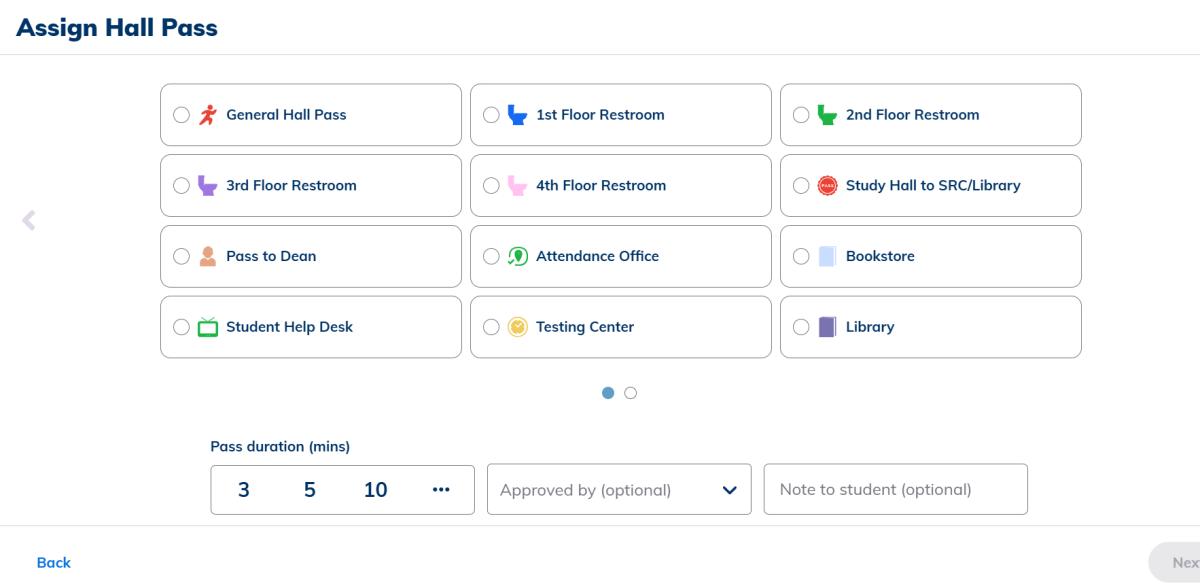Students in Illinois are required to take the ACT instead of the SAT as a graduation requirement as of this school year, adding to complexities surrounding standardized testing for students and teachers.
Although the SAT and the ACT are similar tests, there are some key differences that students should be aware of. “The College Board had moved forward with a digital exam that was very adaptive, but unfortunately, the ACT is not there yet,” said Testing Specialist Kimberly Asbury. This means that every student will take the exact same test, as opposed to the SAT, which had sections where the difficulty changed depending on your accuracy.
The ACT also has a science section that the SAT did not have. This means students will not “have to take the state science test,” said English Division Head Erika Eckart. Unlike the Illinois Science Assessment, students will have access to data and feedback based on the science portion of the ACT.
The SAT became the state mandated standardized test in 2016, switching then from the ACT, but that contract expired in June. As a result, the Illinois State Board of Education (ISBE) chose their next contract based on a variety of criteria such as technology, commitment to diversity and price. Ultimately, the ACT scored the highest and became the state-mandated test, according to the ISBE website.
This shift meant that teachers have had to adapt their in-class test preparations. Many English and math teachers had worked SAT preparations into their curriculum, and have since needed to revise those to better match the ACT.
“I feel like we were on something really good last year. Our SAT scores went up in English, kids wrote us thank-you letters; it was a really positive year,” said Eckart. “The hard part is not for students, it’s for teachers. We’ve had to pivot. We worked really hard to make materials last year, and then in the summer we had to re-make them all because they had to match.”
The post-COVID-19 era has brought up the question of the relevancy of standardized tests to the college admissions process, as many schools have gone test-optional. “I wouldn’t let any standardized test define anyone, and I think that’s why admissions committees are saying we’re not as convinced that [test scores are] telling us what we thought,” said Director of Student Learning Jennifer Brinkman. “We can’t pretend like COVID didn’t happen for this incoming grade, because they experienced it.”
The idea that a test result based on the performance over the course of a few hours should represent a students’ academic merit is one that has been frequently questioned.
“I think life is complicated, and to think that one test or a series of grades defines who you are is not necessarily the best measure,” said Laurie Fiorenza, Ed.D, the assistant superintendent of student learning. “My hope is that we will continue to see more colleges move away from this single score defining you and giving you access to certain things, to allowing students more opportunities to show what they know in a variety of fashions.”
“It’s such an interesting balance because it’s like you know how doors can open based on those numbers for students, but you also as educators know this is not the measure of a person,” said Brinkman. “We have to make sure they’re prepared so they can get the best possible opportunities that are available, but we don’t want them to think this is what they mean to us.”
Despite fewer colleges requiring test scores, students at Oak Park and River Forest High School have continued to put just as much effort into performing
well on these tests. “I still see the test scores being really important in terms of scholarship and funding opportunities,” said Eckart, “and I still see lots of my students taking ACT and SAT prep, taking additional tests on the weekends and working with college coaches.”
Many students are still inclined to take the SAT as well, despite it no longer being required. “Our numbers for the SAT are still up,” said Asbury.
Spots for testing are still filling quickly, leaving many students to travel out of state to find open spots for the SAT.
The PSAT will also still be administered at OPRF to continue to give students an opportunity to receive the National Merit Scholarship, meaning students will be familiar with the style of both tests. “Everybody has to take the ACT, but my hope would be that students also explore the SAT to see if that suits their learning and their demonstration style better, and then submit the better of the two,” said Fiorenza.
“I really think that testing depends on the colleges that everyone’s applying to, because some are test optional, some really want the SAT and some
really want the ACT,” said Asbury.
As students navigate this adjustment, they should “still do the same things that you always have done. You do the things you can to mitigate anxiety, which is to know the test inside and out before you go there,” said Brinkman.
“My hope is that in the comingyears, we will reduce the stress students experience around these tests and that they become less reliant on performing in one setting,” said Fiorenza.






